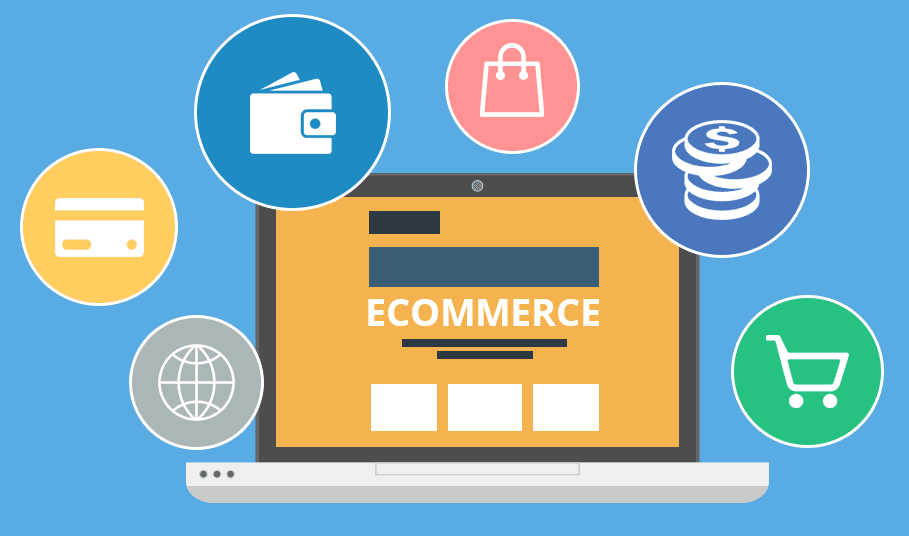This guide covers everything you need to know about e-commerce platforms, from the basics to advanced considerations.
What Is an E-Commerce Platform?
An e-commerce platform is a software application that enables businesses to create and manage online stores. It handles everything from website design and product listings to shopping cart functionality, customer data, and order management. Some platforms even come with marketing tools, inventory systems, and third-party integrations built in.
These platforms allow sellers to showcase their products or services, accept payments, manage shipping, and deliver an overall seamless customer experience.
Types of E-Commerce Platforms
There are different types of e-commerce platforms based on hosting, customization, and scalability. Here are the main categories:
1. Hosted Platforms (SaaS)
These are subscription-based platforms that handle the technical infrastructure for you. They are ideal for beginners or businesses that don’t want to deal with maintenance, updates, or hosting.
-
Advantages: Easy to use, quick setup, includes hosting and security.
-
Considerations: Less control over customization and back-end functionality.
2. Self-Hosted Platforms (Open Source)
These platforms require you to host the software on your own server. They offer full control and customization but demand a higher level of technical expertise.
-
Advantages: Greater flexibility, complete control over the website.
-
Considerations: You are responsible for security, maintenance, and updates.
3. Headless Commerce
A modern approach where the front-end (what users see) is separated from the back-end (product and order management). It’s ideal for businesses looking for ultra-custom experiences across web, mobile, and apps.
-
Advantages: Maximum flexibility and performance.
-
Considerations: Requires developers and a larger initial investment of time and expertise.
Key Features to Look for in an E-Commerce Platform
When choosing an e-commerce platform, consider these essential features:
1. User-Friendly Design Tools
A good platform should offer drag-and-drop builders or customizable themes so you can create an appealing online store without needing to code.
2. Product Management
Look for features like inventory tracking, bulk product uploads, product variation support (size, color, etc.), and categorization.
3. Secure Checkout and Payment Options
The platform should support multiple payment gateways and offer SSL encryption to protect customer data.
4. Mobile Responsiveness
More shoppers are browsing and buying on mobile devices. Your store should look and function beautifully on smartphones and tablets.
5. SEO and Marketing Tools
Built-in tools for search engine optimization, email marketing, and social media integration help drive traffic and increase visibility.
6. Analytics and Reporting
Tracking visitor behavior, sales trends, and inventory movement allows you to make informed decisions and optimize your store.
7. Customer Support
Reliable and responsive customer service can be a lifesaver, especially when technical issues arise.
Benefits of Using an E-Commerce Platform
E-commerce platforms provide several advantages that can accelerate your business’s growth:
-
Scalability: Start small and scale up as your business grows, without needing to switch platforms.
-
Global Reach: Sell to customers across the globe with multilingual and multicurrency support.
-
Automation: Streamline tasks like inventory updates, order confirmations, and abandoned cart emails.
-
24/7 Sales: Your online store is always open, allowing customers to shop anytime.
Choosing the Right Platform: Questions to Ask
Before you commit to an e-commerce platform, ask yourself the following questions:
What is my technical skill level?
Beginners might prefer hosted platforms, while tech-savvy users may opt for self-hosted or headless solutions.
How many products will I sell?
Some platforms are better suited for large inventories; others shine with smaller catalogs.
Do I need special features?
Think about subscriptions, digital downloads, multi-vendor support, or advanced shipping options.
What are my long-term goals?
Make sure the platform can grow with your business, supporting new markets and higher traffic.
Is customer experience a priority?
Look for platforms that offer seamless checkout, fast load times, and intuitive navigation.
Popular E-Commerce Platforms
While there are many platforms on the market, each has its strengths:
-
Beginner-friendly platforms offer ease of use, built-in tools, and customer support. Great for solo entrepreneurs or small teams.
-
Scalable platforms support enterprise-level functionality, advanced customization, and robust integrations. Ideal for growing or complex businesses.
-
Specialized platforms focus on specific industries like digital goods, handmade items, or services, offering niche tools tailored to those needs.
Tips for a Successful E-Commerce Store
Choosing a platform is just the beginning. Here are a few additional tips to help your online business thrive:
-
Focus on user experience: Easy navigation, fast load times, and clear calls to action improve conversions.
-
Use high-quality images: Visual appeal matters, especially in online shopping.
-
Optimize for search engines: Use keywords, meta tags, and descriptive product titles.
-
Invest in customer service: Chatbots, contact forms, and FAQs build trust and improve satisfaction.
-
Track and adapt: Use data insights to continuously improve your store’s performance.
Final Thoughts
An e-commerce platform is more than just a websiteit's the backbone of your digital business. The right platform can help you launch faster, grow smarter, and sell more effectively. Take time to evaluate your needs, research your options, and choose a solution that supports your current goals and future vision.
Whether you're just starting out or looking to take your online store to the next level, the right e-commerce platform can make all the difference.






